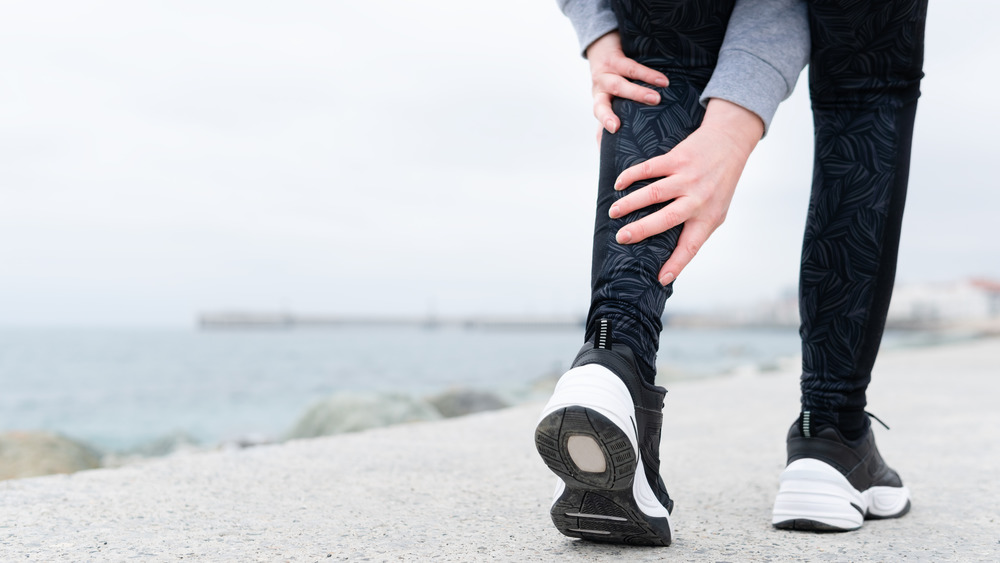The Real Reason Runners Should Stay Away From Ibuprofen
If you're prone to achy knees or side stitches when you run, it might be tempting to pop a pain killer before you head out the door or swallow a couple of ibuprofen tablets when you get back. In fact, a survey showed that 46 percent of participants in the London Marathon planned to use an over-the-counter pain reliever in the race (via The Independent). But relying on painkillers doesn't just cause you to avoid addressing what's wrong with your running regimen, it can also be dangerous.
Ibuprofen — most commonly sold as Advil and Motrin — is a nonsteroidal anti-inflammatory drug (NSAID), and according to Harvard Health Publishing, research has shown that it can have potentially dangerous gastrointestinal side effects, including ulcers and bleeding, as well as kidney and liver damage when used chronically.
Additionally, anti-inflammatories are less helpful to runners than their name implies: Inflammation is actually a key part of the recovery and rebuilding process, so rather than blunting the effects of a hard workout with pills, runners should allow time for their bodies to absorb the work that they've put in. In fact, NSAIDs may even slow down healing rather than speed it up, even if the pain is temporarily relieved (via RunnersConnect).
What should you do instead of using ibuprofen for runs?
Because painkillers can also make you less aware of your emotions and feelings, in addition to hiding that lingering knee pain (that you might be able to prevent by warming up and cooling down properly), your body awareness, in general, may be lessened. That can lead to pushing too hard in a run, potentially making a pre-existing injury worse (via News24).
Rather than relying on NSAIDs to block pain, address the root cause. If you have regular stomachaches, assess what you're eating before you head out the door: certain foods can cause more gastric distress than others. Headaches post-run can be caused by over-exertion, mild dehydration, or tension in your neck while you're out on the road. If that's the reason you're popping painkillers, consider easing up; hydrating well before, during, and after your workout; and trying to relax the muscles in your neck and upper back while you run. If your knee is bothering you every time you run, visit a physical therapist. And if you're constantly sore, you may simply be running too much and need more time to recover.


